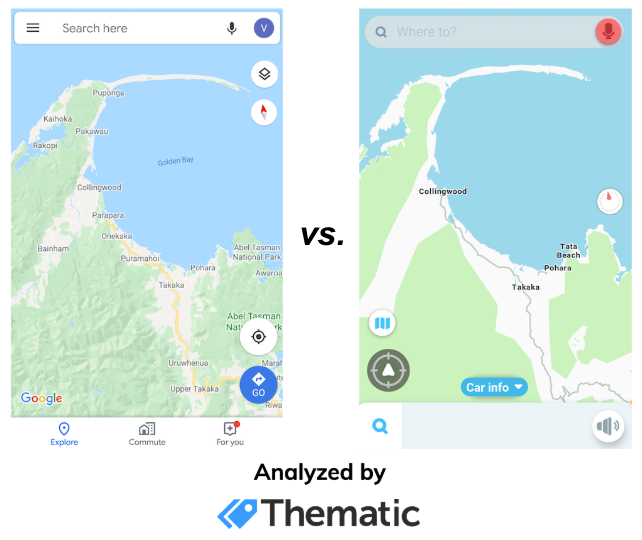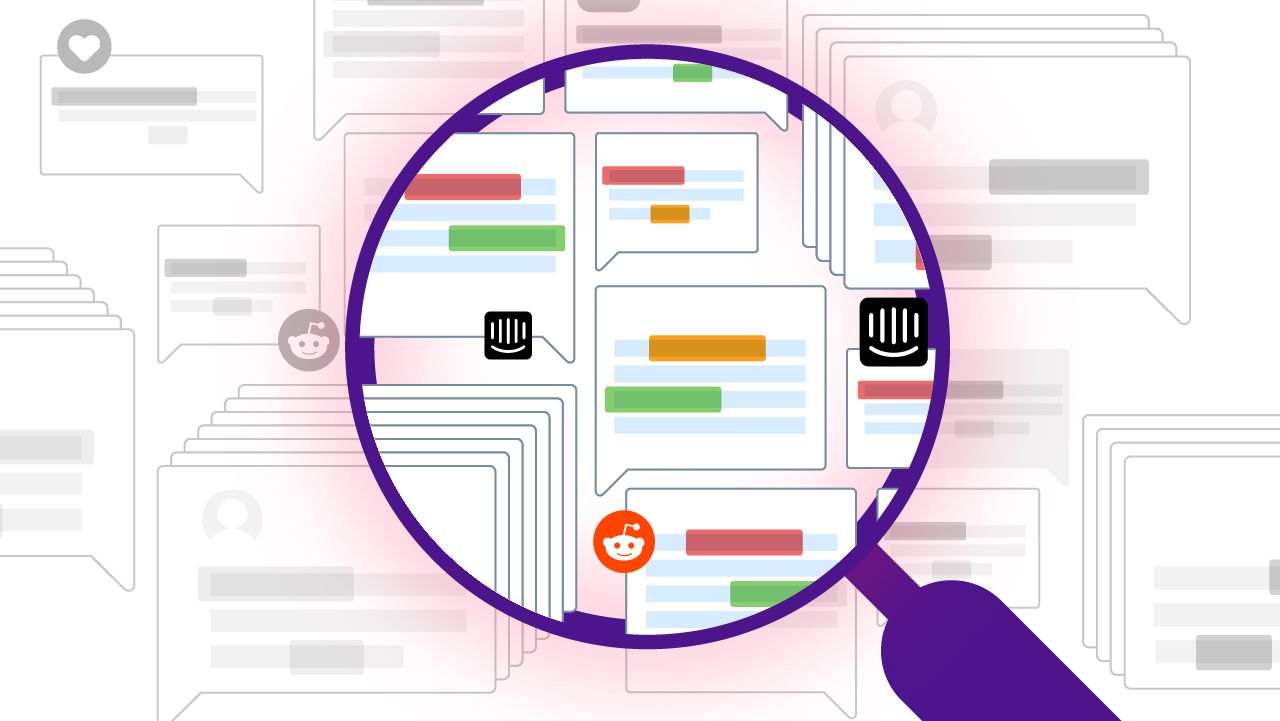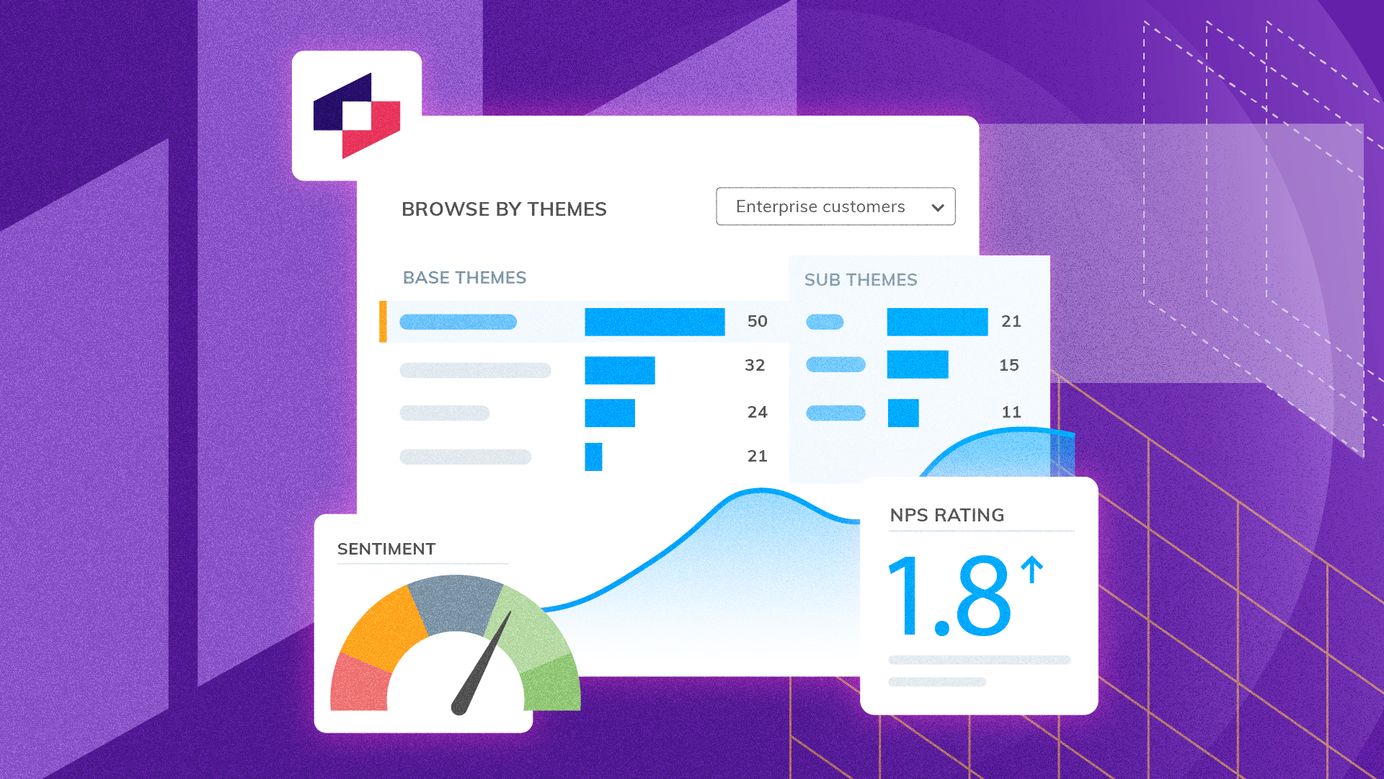
Google Maps vs Waze 2024 — Analyzing 10,000 App Reviews
Google Maps vs. Waze - We used Thematic AI to learn how they compare against each other.
Do you remember last time you had to get a physical map or write down the instructions to get to a destination?
Today, it has never been easier to navigate; whether it is close to your home or in a different country or continent, there are a number of navigation apps that are available to help us go anywhere we’d like. Let’s look at two of the most popular contenders, Google Maps vs Waze!
Google Maps is one of the top navigation apps available at the moment and is packed with lots of features, but there’s also an equally popular app called Waze.
Waze is a community driven navigation app which allows its users to report any traffic-related incidents, which are then used to provide routing and real-time traffic updates.
It was originally developed in 2006 as a community project in Israel to create a free digital database of the map of Israel and was later acquired by Google in 2013.
I love going to remote locations by campervan on weekends. I am an avid user of both navigation apps, and so I was curious to learn how they compare against each other.
To do this, I used Thematic to pull and analyze app reviews from Google Play Store. Thematic is a customer insights solution, which can easily breakdown customer feedback & reviews into themes to discover hidden insights in the data.

Thematic
AI-powered software to transform qualitative data into powerful insights that drive decision making.
What’s the better map app when comparing Google Maps vs Waze?
You will want a quick answer, but unfortunately the differences between these apps are not apparent from the score alone. Their overall scores are very close, both just below 4 out of 5:
- Google Maps: 3.7 out of 5 stars
- Waze: 3.8 out of 5 stars
To decide which is the map application for you, we need to take a deeper look at the insights Thematic derived from 10,000 reviews for each app.
Note: The score above is an average of the scores from the latest 10,000 reviews for each app as of end of February 2020.
Analyzing the app reviews
Thematic analyzed 10,000 reviews for each app and discovered relevant themes in each review and all reviews overall.
What is a “theme”?
Thematic’s AI can comprehend the sentiment of a customer review and will group comments in a review that reference the same topic. These groupings are called a ‘theme’. Each review can have multiple themes. Thematic also assigns a sentiment score to each theme mentioned.
For example, the theme “helpful app” captures all customer reviews that mention the helpfulness of the app. The comment below also mentions “updates”, a more neutral theme (hence the colour yellow).

Continue reading for a deeper analysis of Google Maps vs Waze and the themes that had a large impact on an app’s overall score.
Terms that we’ll reference in this comparison are:
- Volume (%) – the percentage of reviews that talk about a particular theme
- Impact – the difference in the score caused by a theme
- Score (out of 5) – the average score from reviews in a theme
- Over Time Analysis – shows various themes causing a difference in the final score over a period of time.
Let’s get started and take a look at themes that had a significant impact on the app’s total score.
Which map has more fans?
One of the themes Thematic found was “amazing app”, which captures comments like these:

While not very actionable, this theme captures people who are fans. Comparing the volume of this theme among the blue responses (Waze) to orange (Google), shows that Waze has significantly more fans.


Which app has better ease of use?
2.3% of Google Maps reviews said that the app was easy to use whereas 3.2% of Waze reviews said the same. If we compare sentiment, Waze has slightly better overall sentiment score.

Winner: Tie!
Waze is slightly better than Google Maps in terms of ease of use but not by a significant amount.
Which app has better traffic & route accuracy according to users?
Most of you would agree that reliability, accuracy and access to real time traffic is the most important feature for a navigation app. So let’s see how the two apps compare:


Waze also had 10 times more reviews mentioning 'real-time traffic' compared to Google Maps. That’s not a surprise, since Waze’s promise is to deliver exactly that.

However, what’s important is people’s sentiment. For example, when it comes to real-time traffic, Waze users feel more negative about it than Google Maps users.

When we remove themes mentioning 'reliability' from reviews, both Waze’s and Google Map’s scores actually improve slightly. This is captured by Thematic’s Impact feature. It’s calculation shows that issues with reliability are actually dragging Waze’s score down more than that of Google Maps:

Winner: Google Maps
If you’re after accurate real-time traffic updates and reliability, you may want to choose Google Maps.
Which app has better voice prompts?
Voice is somewhat important for users of map apps. It isn’t mentioned a lot, but those who mention it really do care:

Waze had 5 times more reviews mentioning 'voice prompts' compared to Google Maps.

Interestingly, people tend to leave a lower score for Google Maps when they talk about voice prompts compared to Waze. The average score across reviews mentioning voice prompts is 3.2 for Waze and 2.6 for Google Maps.

Winner: Waze
If you tend to use voice prompts often, then Waze might be a better choice.
What’s going on with Android Auto?
Thematic has highlighted a significant difference between Google Maps and Waze – 4.7% of the reviews for Waze talk about 'Android Auto' whereas only 0.2% of Google Maps reviews talk about it.

Looking at Thematic’s impact calculations, the reviews mentioning “Android Auto” contribute to a negative impact of 2.2% on the final score for Waze and only 0.1% for Google Maps.

I’ve used Thematic’s Related Themes tool to find out why Android Auto is having a negative impact on Waze’s overall score and this shows that 9.1% of the reviews that talk about 'Android Auto' referred to 'losing GPS'.

The reviews explain that the reason behind giving a score of 2 is due to their frustration with Android Auto and problems with GPS connectivity:

The good news is that Waze is slowly fixing this issue. The Volume of “Android Auto” has been decreasing since November:

Winner: Google Maps
There are significantly more reviews complaining about Android Auto on the Waze app.
If you’re looking to connect your maps to your car without GPS connectivity difficulties, Google Maps is the better choice.
Which app has more crashes?
When it comes to crashes, bugs and lagginess, Waze has worse results that Google Maps:

Winner: Google Maps!
Not only more people complain about the app crashing for Waze, the impact on the overall score is greater for this app.

Which app releases better updates?
A combined volume of over 25% of reviews talks about updates with 10.3% for Waze (blue) and 14.8% for Google Maps (orange).

Both apps have substantially higher negative reviews compared to positive.
- Waze – 567 negative / 177 positive
- Google Maps – 1018 negative / 159 positive
Thematic’s Impact tool shows a much more negative impact on the final score for Google Maps at 6.7%, compared to only 3.8% for Waze.

Digging deeper, here is an overview of the issues experienced when people mention “updates” for both apps:

Whereas for Waze (blue) it’s 'Android Auto', for Google Maps (orange) it’s the fact that the app is more 'slow', 'buggy' and has more 'battery' issues.
Winner: Waze
More users have complained about Google Maps updates’ causing app difficulties vs. Waze.
Waze might be a better option if you don’t want app updates causing you problems.
Conclusion: Google Maps vs Waze – Which app should I use?
Both Google Maps and Waze have good parts, as well as their share of issues.
Google Maps seems to be more reliable, accurate and has better real-time traffic, whereas Waze has a larger army of fans who think the app is amazing who love its voice prompts feature.
However, updates caused issues for both apps. Google Maps users think that the app is slower and crashes more, whereas Waze users have problems with Android Auto and GPS connectivity.
Which app is the best for you entirely depends on how you chose to use it.
If you want to connect your map application to your vehicle, Google Maps is the clear winner.
If you’re after better voice directions, go for Waze.
In case you didn’t know, Google owns Waze! It bought it for over $1B some years ago. With that, instead of competing head-to-head, Google can appeal for two kinds of users. Those who trust insights crowd-sources through other users via Waze, and those trust its high tech built into Google Maps. This review shows that this mission was accomplished!
Keen to see how Thematic can analyze and find insights in your customer feedback? Book a free, personalized demo with one of our team!
Stay up to date with the latest
Join the newsletter to receive the latest updates in your inbox.




